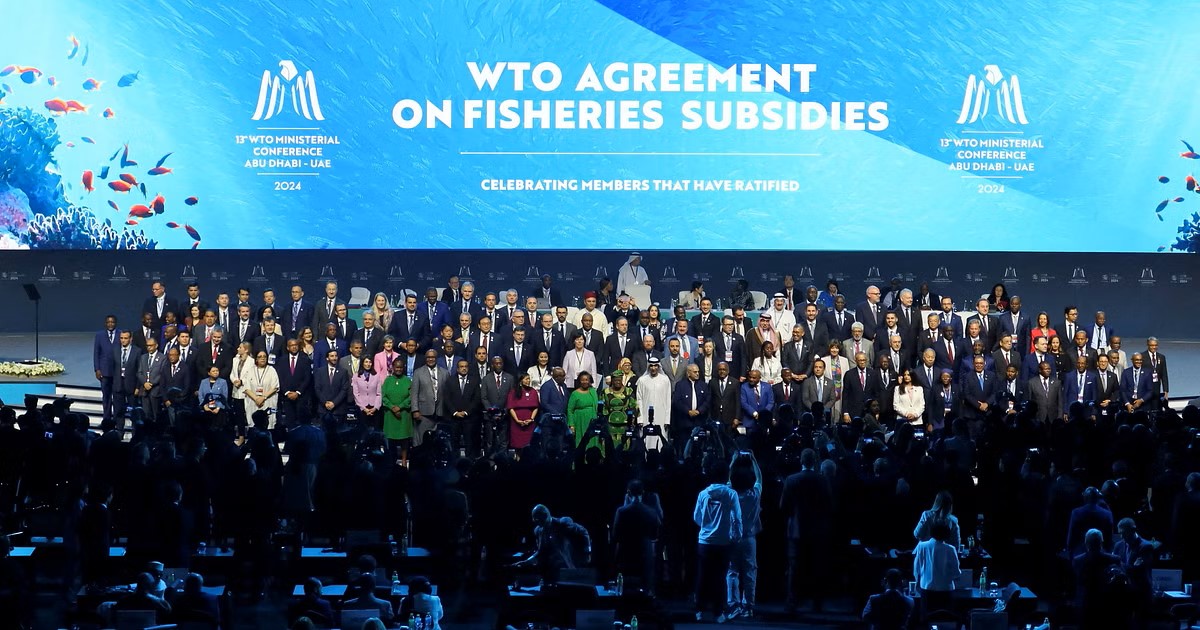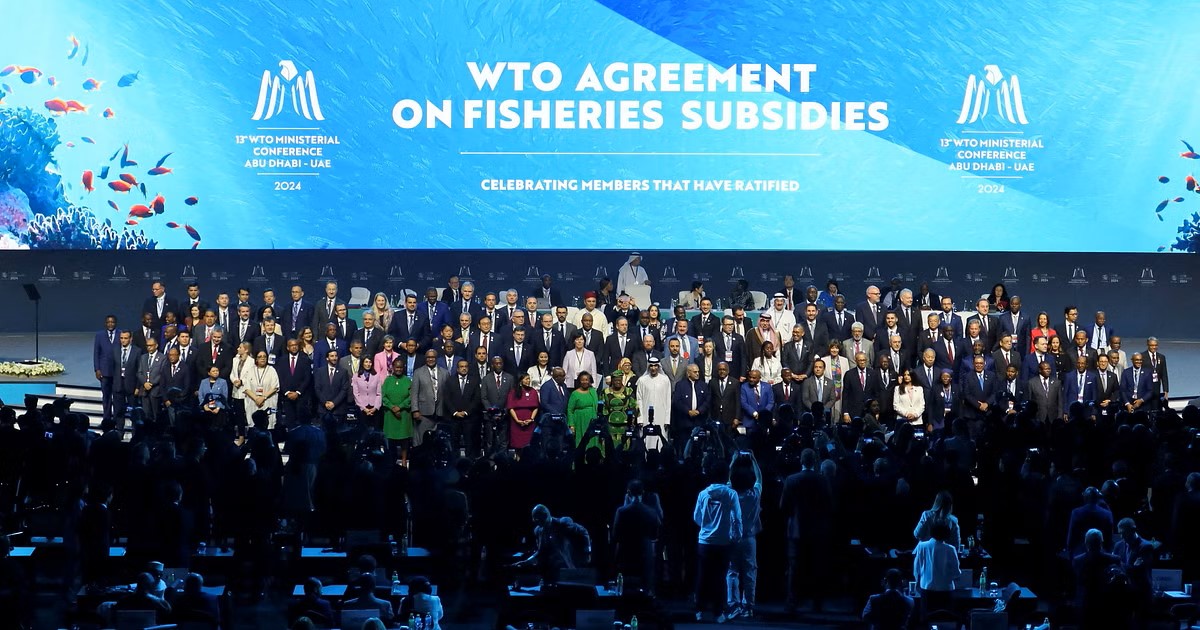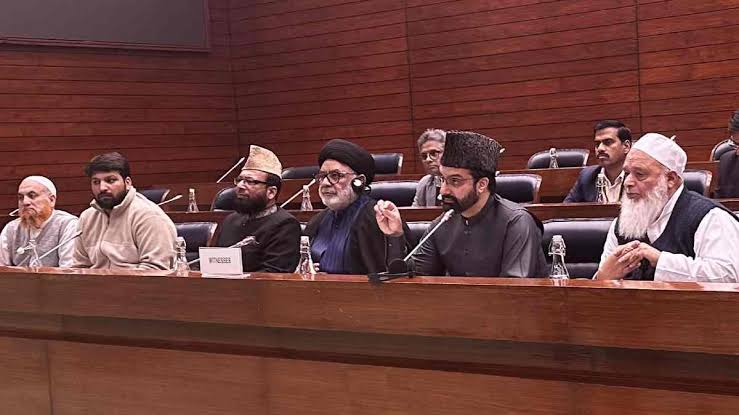The 13th Ministerial Conference (MC13) of the World Trade Organization (WTO) in Abu Dhabi witnessed India taking centre stage in the crucial fisheries subsidies negotiation session on February 27th. Recognizing the multifaceted nature of this issue, India adopted a nuanced and multi-pronged approach, aiming to bridge the gap between fostering sustainable practices and addressing the needs of developing nations.
 1. Balancing Tradition and Progress: Sustainable Practices Deeply Rooted
1. Balancing Tradition and Progress: Sustainable Practices Deeply Rooted
India initiated the discussion by emphasizing its unwavering commitment to responsible fishing practices. It underscored that these principles are not merely guidelines but deeply ingrained in its diverse fishing communities’ cultural fabric and ethical considerations. This unwavering commitment to sustainability served as the foundation for India’s position throughout the negotiations.
2. Prioritizing Livelihoods: A Just Agreement for All
Acknowledging the vital role fisheries play in food security and livelihoods, particularly for developing countries and small economies, India emphasized the need for an agreement that prioritizes the concerns of communities directly dependent on marine resources. This included ensuring fair treatment and safeguarding the socio-economic well-being of these communities while simultaneously pursuing the shared objective of sustainable fishing practices.
3. Adherence to Established Principles: Ensuring Equity
India urged the incorporation of established WTO principles, such as Common But Differentiated Responsibilities and Respective Capabilities (CBDR-RC) and Special and Differential Treatment (S&DT), into the agreement. Implementing these principles recognizes the unique challenges developing countries face and ensures a level playing field by preventing them from being disproportionately burdened by the agreement’s provisions. This emphasis on equity aligns with India’s overarching goal of achieving a just and inclusive agreement for all stakeholders.
4. Addressing Loopholes for Effective Action: Closing the Gaps
Recognizing that a comprehensive approach is essential to tackle the multifaceted issue of unsustainable fishing practices effectively, India advocated for plugging critical loopholes in the proposed agreement. These included:
- Non-specific fuel subsidies: These currently fall outside the purview of regulations, creating a loophole that hinders progress towards sustainability. India called for their inclusion to ensure a more holistic approach.
- Government-to-Government (G2G) payments for transferring fishing rights: This practice, if left unchecked, can distort fair competition and undermine efforts towards responsible fishing. India urged the inclusion of provisions to address this potential issue.
- Subsidies granted by Distant Water Fishing Nations (DWFNs): Highlighting their potential to disrupt sustainable fishing practices in other regions, India proposed targeted regulations on subsidies granted by DWFNs. This bold proposal aims to mitigate the negative consequences of these practices and promote long-term sustainability on a global scale.
5. Combating Unsustainable Practices: A Call for a Moratorium
Recognizing the significant impact of subsidies provided to DWFNs on overfishing and resource depletion, India went a step further by calling for a 25-year moratorium on such subsidies. This proposal, while ambitious, demonstrates India’s unwavering commitment to combating unsustainable practices and ensuring the long-term health of marine resources.
6. Addressing Overcapacity and Overfishing: A More Nuanced Approach
India expressed concerns regarding the limitations of the current approach to tackling overcapacity and overfishing (OCOF), arguing that it fails to adequately address the issue’s complexities. They proposed applying the “affirmative determination approach” used for the Overfished Pillar to OCOF. This approach would enable a more nuanced and effective strategy for managing fishing capacity and preventing overfishing, ensuring the long-term sustainability of fish stocks.
7. Respecting Sovereignty and Sustainable Management:
India reiterated the importance of respecting the sovereign rights of member countries to manage their Exclusive Economic Zones (EEZs) sustainably, as stipulated by the UN Convention on the Law of the Sea (UNCLOS). This emphasis ensures that any agreement reached at the WTO respects the existing legal framework governing the management of marine resources, striking a crucial balance between international cooperation and national sovereignty.




